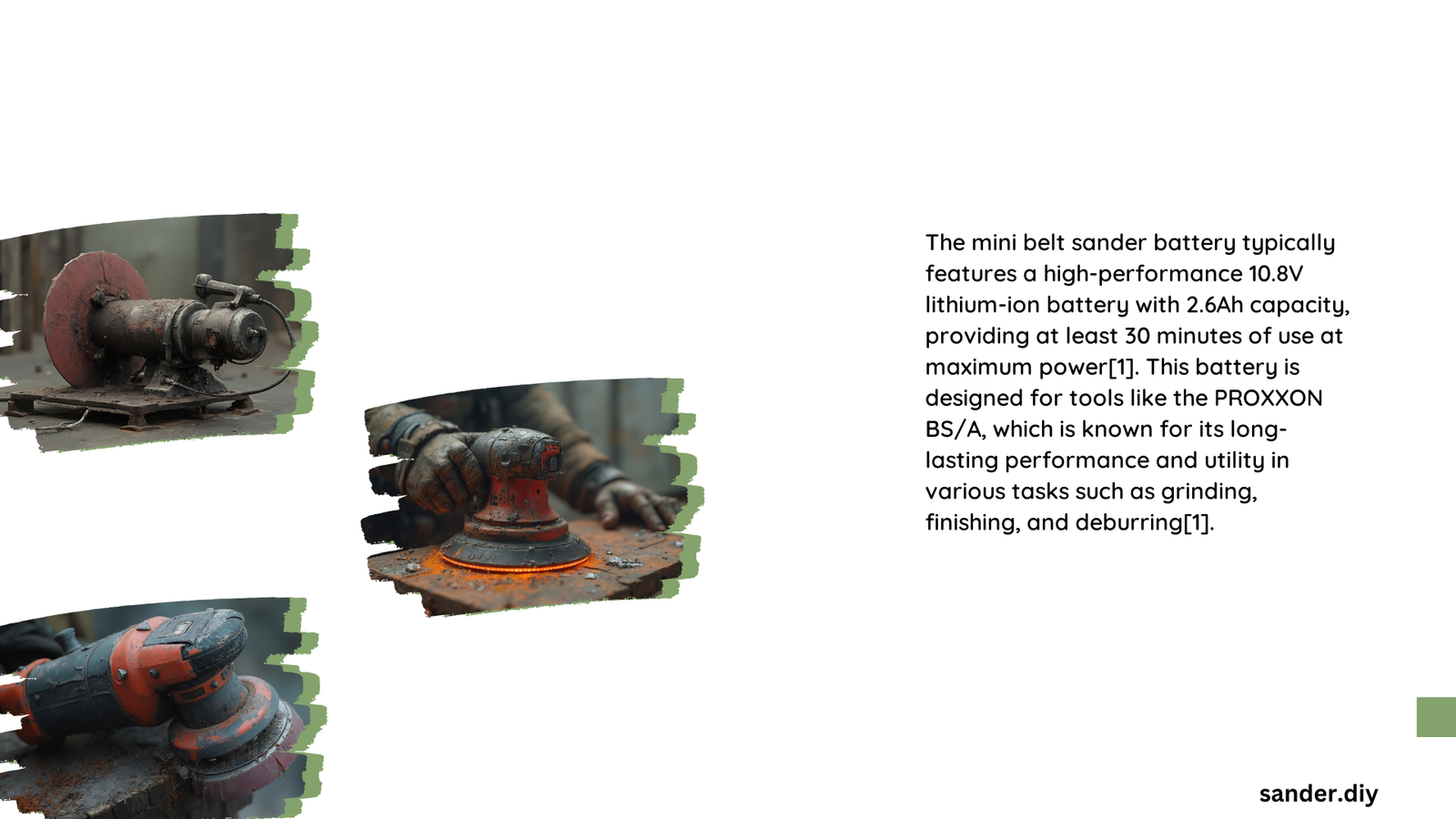Mini belt sander batteries represent a critical component in modern portable woodworking and DIY tools, offering users unprecedented flexibility and mobility. These compact power sources enable craftsmen and hobbyists to perform precise sanding tasks without being tethered to electrical outlets, revolutionizing how intricate and detailed work can be accomplished across various projects and environments.
What Are the Voltage Specifications for Mini Belt Sander Batteries?
Mini belt sander batteries come in diverse voltage configurations, each designed to meet specific performance requirements:
| Brand | Voltage | Typical Amp-Hour Rating |
|---|---|---|
| WORKPRO | 12V | 2.0 Ah |
| Ryobi | 18V | 2.0-4.0 Ah |
| Greenworks | 24V | 2.0-4.0 Ah |
How Do Battery Specifications Impact Performance?
Battery performance depends on several critical factors:
- Voltage Influence
- Higher voltage translates to increased power output
- 24V batteries provide more robust performance compared to 12V options
-
Enables handling tougher sanding materials and prolonged work sessions
-
Amp-Hour Considerations
- Higher amp-hour ratings indicate extended battery life
- 4.0 Ah batteries offer significantly longer operational time
- Crucial for professionals requiring consistent, uninterrupted work
What Determines Battery Compatibility?

Compatibility varies significantly across different brands:
- WORKPRO
- Batteries exclusively designed for WORKPRO tools
- Limited cross-tool compatibility
-
Requires specific adapters for alternative usage
-
Ryobi
- Part of the ONE+ ecosystem
- Batteries interchangeable across multiple Ryobi tools
-
Simplified battery management for users
-
Greenworks
- Compatible with 150+ Greenworks 24V tools
- Standardized battery platform
- Minimal adaptation requirements
How Long Do Mini Belt Sander Batteries Last?
Battery duration depends on multiple variables:
- Material Hardness
- Softer materials consume less battery power
-
Harder surfaces require more energy expenditure
-
Sanding Intensity
- Higher speeds drain batteries faster
-
Consistent, moderate speeds optimize battery performance
-
Environmental Factors
- Temperature impacts battery efficiency
- Extreme cold or heat can reduce overall battery lifespan
What Are Replacement Battery Costs?
Replacement battery prices vary based on specifications:
- WORKPRO: $15-$30
- Ryobi: $20-$50
- Greenworks: $25-$60
Key Purchasing Considerations
- Check voltage compatibility
- Verify amp-hour requirements
- Consider brand ecosystem
- Evaluate long-term cost-effectiveness
Maintenance Tips for Optimal Battery Performance
- Store batteries at room temperature
- Avoid complete discharge
- Use manufacturer-recommended chargers
- Clean battery contacts regularly
- Replace batteries every 2-3 years
Emerging Battery Technologies
Future mini belt sander batteries are trending towards:
– Higher energy density
– Faster charging capabilities
– Enhanced durability
– Lightweight designs
– Improved environmental sustainability
Conclusion
Selecting the right mini belt sander battery requires understanding voltage, compatibility, performance characteristics, and individual project needs. By carefully evaluating these factors, users can maximize tool efficiency and productivity.
